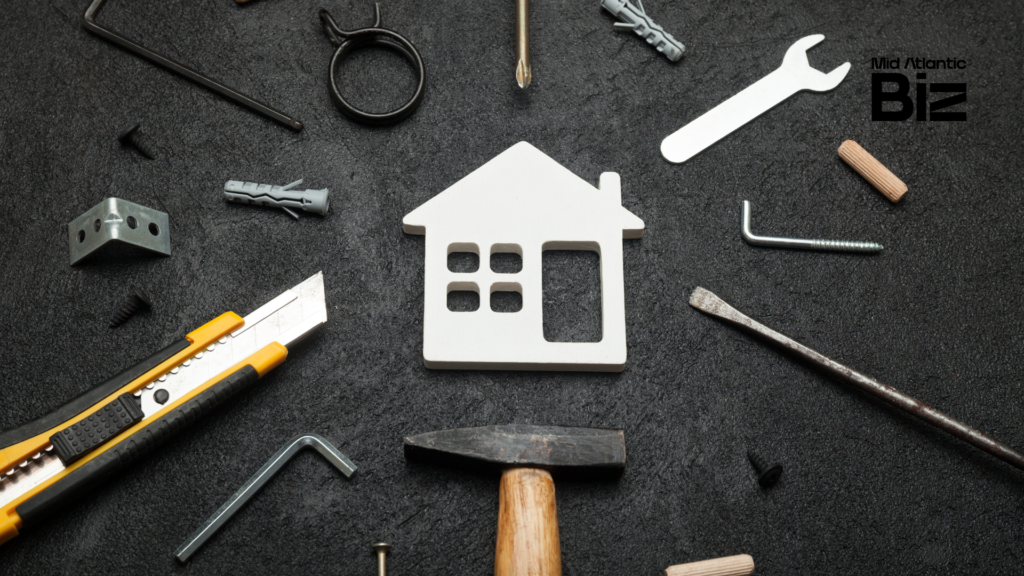
The home services industry is evolving rapidly in response to changing consumer expectations, technological advancements, and the growing need for sustainable and efficient solutions. As we approach 2024, several key trends are emerging, shaping the future of this sector. This blog explores these trends in detail, examining their impact on businesses, consumers, and entrepreneurs. From smart home technology to the demand for on-demand services, we’ll delve into how these developments are influencing home service providers and what they mean for the industry in the years to come.
1. The Rise of Smart Home Technology
The integration of smart technology into residential spaces is perhaps the most significant trend in the home services industry today. Smart home devices, including thermostats, security cameras, lighting systems, and connected appliances, have become increasingly popular as homeowners seek convenience, energy efficiency, and enhanced security. According to a report from Grand View Research, the smart home market is expected to grow at a compound annual growth rate (CAGR) of 25.3% from 2024 to 2030, reflecting the rising demand for these technologies.
For home service businesses, this represents both a challenge and an opportunity. On the one hand, the demand for installation, troubleshooting, and maintenance services for these devices is skyrocketing. Home service providers, including HVAC technicians, electricians, and plumbers, are adapting to this shift by acquiring the skills necessary to install, repair, and integrate smart devices. Companies are increasingly offering services that include the setup of smart thermostats, energy-efficient lighting, and home security systems.
One notable example of this trend is the growing demand for smart thermostats, such as those from Nest and Ecobee, which offer homeowners the ability to control their home’s temperature remotely. Service providers are capitalizing on this by offering installation and regular maintenance services, helping homeowners optimize their energy usage and reduce utility bills. Additionally, the rise of voice-controlled assistants like Amazon’s Alexa and Google Assistant has further fueled the demand for smart home integration, allowing homeowners to control a wide range of systems with voice commands.
2. The Increasing Importance of Sustainability
Sustainability is becoming a key consideration for homeowners and service providers alike. With growing concerns about climate change, more consumers are prioritizing eco-friendly solutions when it comes to home improvements and maintenance. According to a 2023 survey by Statista, over 70% of U.S. homeowners reported that they are interested in making energy-efficient upgrades to their homes. This shift is evident in the increasing demand for services related to renewable energy systems, sustainable landscaping, and green building materials.
Home service businesses are responding by offering energy-efficient and environmentally friendly solutions. For example, HVAC companies are now focusing on promoting energy-efficient heating and cooling systems that reduce energy consumption while keeping homes comfortable. Additionally, electricians are increasingly installing energy-saving appliances and smart home devices that help homeowners monitor and reduce their energy usage.
Landscaping companies are also tapping into the sustainability trend by offering services that prioritize water conservation, native plant species, and eco-friendly materials. Drought-resistant plants, xeriscaping, and sustainable lawn care practices are becoming more popular as homeowners seek to reduce their water usage and carbon footprints.
In addition to offering sustainable services, many home service businesses are also adopting green practices in their operations. From using eco-friendly cleaning products to reducing waste in their supply chains, companies are becoming more conscious of their environmental impact.
3. On-Demand Home Services: The Rise of Instant Gratification
The demand for on-demand services is reshaping the home services industry. Consumers increasingly expect immediate, flexible access to services, driven by the success of on-demand platforms in other sectors such as ride-sharing and food delivery. According to a 2024 report by the National Association of Home Builders, 53% of consumers prefer booking home services through mobile apps, and 64% want services delivered on-demand.
This trend is leading to the rise of home service platforms and apps that connect consumers with professionals for everything from plumbing and electrical work to cleaning and lawn care. These platforms offer the convenience of online booking, real-time tracking, and instant communication, making it easier for consumers to find reliable professionals when they need them the most.
For businesses, the shift toward on-demand services represents an opportunity to expand their customer base by embracing technology. Companies can use these platforms to streamline operations, reduce overhead costs, and offer customers a seamless booking experience. Services like Handyman, TaskRabbit, and Thumbtack have already made significant strides in this space, offering homeowners access to a wide range of skilled professionals at the touch of a button.
In addition, emergency services, such as plumbing repairs after a burst pipe or roof repairs following a storm, are becoming more accessible through on-demand platforms. Consumers are increasingly expecting home service businesses to provide 24/7 availability, and companies that can meet these demands will likely see growth in the coming years.
4. Artificial Intelligence (AI) and Automation: Transforming the Customer Experience
Artificial intelligence (AI) and automation are beginning to play a larger role in the home services industry. From chatbots handling customer inquiries to predictive maintenance systems that identify issues before they become problems, AI is enhancing the efficiency of service delivery and improving the customer experience.
For example, AI-powered chatbots are helping home service businesses handle customer inquiries more efficiently, providing instant responses to common questions and scheduling appointments without the need for human intervention. This reduces wait times for customers and frees up staff to focus on more complex tasks.
In addition, AI is being used to power predictive maintenance systems, particularly in the HVAC and plumbing industries. These systems use sensors and data analytics to monitor equipment performance and predict when repairs or replacements will be needed. This proactive approach to maintenance helps prevent costly breakdowns and minimizes downtime for homeowners.
AI is also being leveraged to optimize service routes and scheduling. Home service businesses can use AI algorithms to ensure that technicians are dispatched efficiently, reducing travel time and improving overall service delivery. As AI technology continues to evolve, its applications in the home services industry will only expand, making operations more efficient and customer-friendly.
5. The Shift Toward Subscription-Based Services
Subscription-based business models are gaining traction in the home services sector. Many companies are now offering subscription plans that provide regular maintenance and inspections for a fixed monthly or annual fee. This model appeals to consumers who want predictable costs and peace of mind knowing that their home systems are regularly serviced and maintained.
Subscription-based services are particularly popular in industries like HVAC, plumbing, and pest control, where regular maintenance is crucial for preventing costly repairs and ensuring the longevity of home systems. For example, HVAC companies offer annual maintenance contracts that include regular inspections, filter replacements, and system tune-ups, helping homeowners keep their heating and cooling systems running efficiently.
The subscription model benefits both service providers and consumers. For businesses, it provides a stable, recurring revenue stream and increases customer retention by encouraging long-term relationships. For consumers, it offers convenience and savings, as subscription plans often come with discounted rates on repairs and priority service.
In the coming years, we can expect more home service businesses to adopt subscription models, offering a wide range of services such as lawn care, cleaning, and even home improvement, all under one monthly or yearly subscription.
6. The Role of Customer Experience in Building Loyalty
As competition in the home services industry intensifies, businesses are increasingly focusing on delivering exceptional customer experiences to build loyalty and stand out from the crowd. A 2024 survey by ServiceTitan found that 83% of homeowners consider customer service to be the most important factor when choosing a home service provider.
Home service businesses are investing in technologies and strategies to enhance the customer experience, from user-friendly websites and mobile apps to personalized service and transparent pricing. Many companies are also adopting CRM (customer relationship management) systems to track customer preferences, offer tailored recommendations, and follow up after service appointments to ensure satisfaction.
In addition to improving communication and convenience, businesses are recognizing the importance of trust and transparency. Homeowners want to feel confident that they are getting the best value for their money, so companies are offering upfront pricing, clear service guarantees, and customer testimonials to build trust.
For home service providers, focusing on customer experience is no longer optional—it’s essential for long-term success. Companies that can provide a seamless, reliable, and personalized experience will have a competitive edge in 2024 and beyond.
Conclusion
The home services industry is undergoing a profound transformation, driven by technological advancements, changing consumer expectations, and a growing emphasis on sustainability. As we move into 2024 and beyond, businesses that embrace these trends will be better positioned to succeed in an increasingly competitive market. From the rise of smart home technology to the growing demand for sustainable solutions and on-demand services, the future of home services looks bright. By staying ahead of these trends and adapting to the evolving needs of consumers, businesses can build long-lasting relationships, enhance customer satisfaction, and drive growth in the years to come.
Article by : Mid Atlantic Biz
References
- Statista, “Home Services Market in the U.S.,” Statista Research, 2024. Link
- National Association of Home Builders, “Trends in Home Services,” NAHB, 2024. Link
- ServiceTitan, “2024 Homeowner Preferences Survey,” ServiceTitan, 2024. Link
- Grand View Research, “Smart Home Market Size & Share Report,” Grand View Research, 2024. Link












